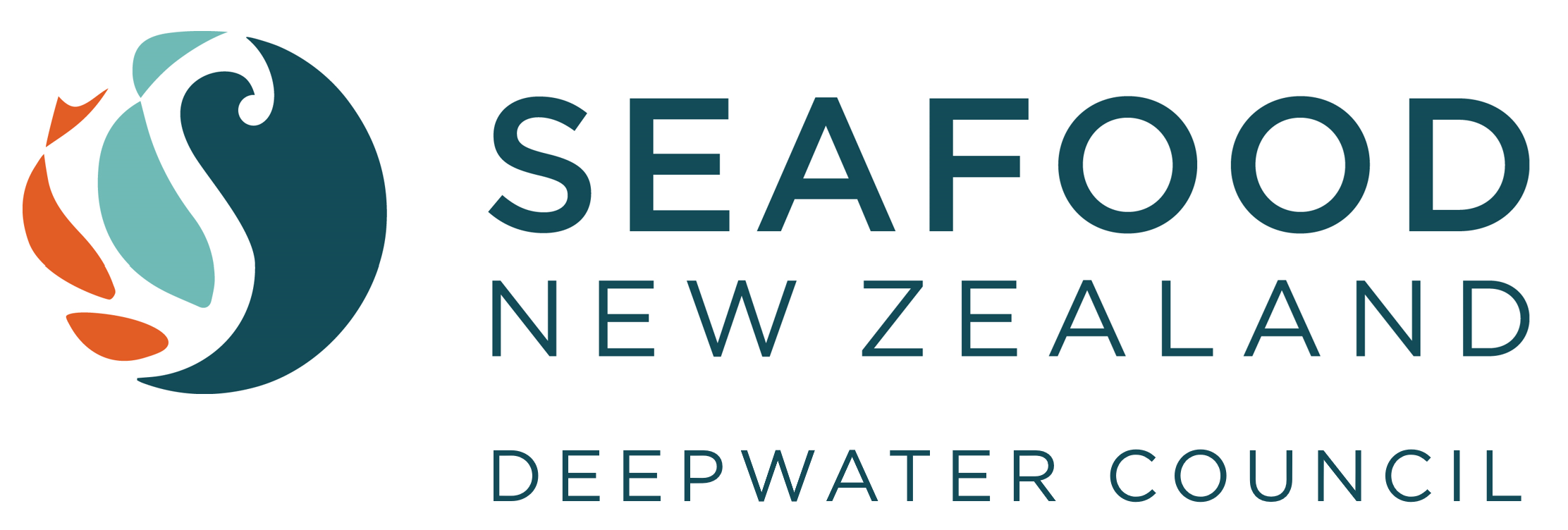The Seafood Industry Improves Its Environmental Performance
Published: 2 November 2016

A recent Government report shows that the environmental impacts from New Zealand commercial fishing have been reduced.
Releasing the report Our Marine Environment 2016, Secretary for the Environment Vicky Robertson said changes in fishing practices have alleviated pressures on the marine environment.
“There have been some significant decreases in this area that we expect are mostly due to the uptake of mitigation measures such as bird scaring and sea lion exclusion devices,” Ms Robertson said.
Ms Robertson reports there are now fewer ‘captures’ (noting ‘captures’ also includes those animals released alive and unharmed) of marine mammals (such as fur seals, sea lions and dolphins) and seabirds.
Deepwater quota owners understand the cost of incidental interactions between fishing, seabirds and marine mammals both to the environment and to their businesses.
Since the early 2000s, environmental mitigation and performance has become a core part of their businesses. This includes developing and implementing mitigation devices to deter seabirds from entering high-risk areas, such as the ahead of the trawl warps or near surface baited hooks on long lines. Mitigation devices are now compulsory on all deepwater vessels and are proving very successful.
Crews also receive regular training on how to minimise risks to seabirds and marine mammals, and government observers routinely monitor at-sea performances to identify where further improvements could be made.
The report from the Ministry for the Environment and Statistics New Zealand also reports on the industry’s reduced impact on the seabed communities – noting the annual number of trawl tows has reduced to around half those undertaken 20 years ago.
The reduction in tows is largely attributable to the increased abundances of fish stocks through the Quota Management System and improved harvesting efficiencies. Fishermen also tend to return to the same towlines each year. More than 90% of New Zealand’s Exclusive Economic Zone remains untouched by bottom trawling and 30% is protected by law to conserve the marine biodiversity in these areas.
A further testament to the industry’s performance is that New Zealand now has over 50% of its catch, or 70% of its deepwater catch, certified as sustainable by the Marine Stewardship Council – the world’s gold standard for sustainable seafood.
While fishing is often blamed for degradation of marine environments, the report highlighted significant improvements in the performance of fishing activities, while noting serious concerns about marine degradation caused by climate change and in coastal waters due to run-off and sedimentation.
The report notes an estimated 192 million tonnes of sediment is washed off the land into our estuaries and coastal waters every year. “This is our top soil, so we are losing one of our big assets out to the ocean,” Ms Robertson said. “Furthermore, too much sediment makes life hard for shellfish and other creatures.”
“Nutrients such as nitrogen and phosphorus washed off our land into the sea causes problems. Run-off can reduce oxygen in seawater and contribute to algal blooms, which can be toxic. Our coastal areas perform some really important functions like recycling nutrients and human waste, trapping and stabilising sediments, producing oxygen that supports other marine life, and providing nursery grounds for fish.”
Loss of breeding habitats, introduced predators and disease were listed as non-fishing threats to seabirds. Ship strike, pollution, disease and habitat changes, were among the threats to marine mammals.
“This report supports our view that the seafood industry remains one of the most environmentally sustainable food producers in New Zealand. Annually we are now producing over 2.3 billion healthy meals and earning $1.8 billion from seafood exports. Given the healthy state of our marine resources and the global demand for seafood, the future for New Zealand seafood looks promising. The seafood industry will continue to improve its environmental performance and to excel as global exporter of sustainable seafood,” said Deepwater Group Chief Executive, George Clement.
Deepwater Group is a non-profit representing the interests of deepwater quota owners and works in partnership with the government, scientists, environmental groups and others to ensure that New Zealand’s deepwater fisheries are sustainably managed.
